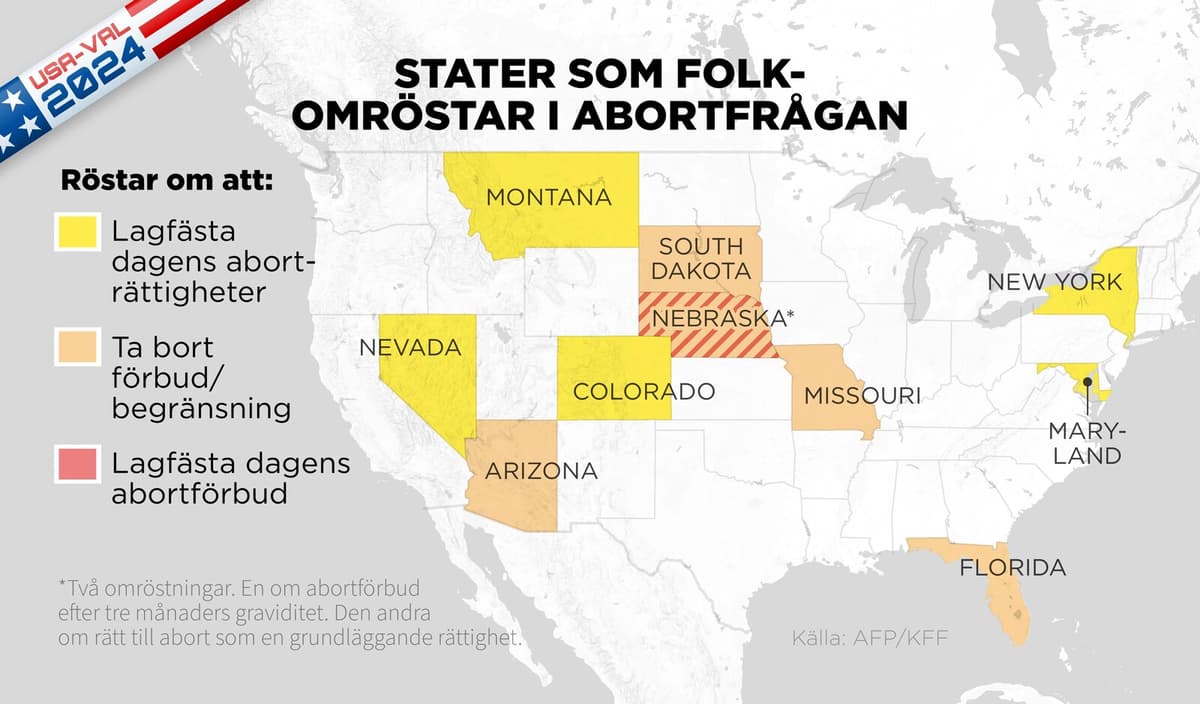In ten states, a referendum is being held on the right to abortion, which has been high on the agenda in recent years and not least during the presidential election campaign.
In Arizona, Florida, Missouri, and South Dakota, it is about invalidating different bans or restrictions on the right to abortion that have been introduced.
In Colorado, Maryland, Montana, and Nevada, it is about enshrining or otherwise ensuring access to abortion in the future.
Conservative shift
Donald Trump was able to appoint three new judges to the US Supreme Court during his presidency, thereby gaining an unusually great opportunity to give the American judiciary's highest instance a clearly conservative majority. In the summer of 2022, the court overturned the precedent "Roe v. Wade", which since 1973 had established that the right to abortion was constitutionally guaranteed throughout the USA.
Kamala Harris has placed great emphasis on this issue and promised to try to reintroduce the right to abortion nationally, well aware that a majority of Americans are in favor of abortion rights. Trump has pushed the issue aside and said that it is a matter that each state should decide.
Several states have held referendums on the abortion issue in this new situation, and in all of them, the side advocating for the right to abortion has won.
However, in 13 states, abortion bans currently apply throughout pregnancy, except in certain exceptional cases. In four other states, bans apply from the sixth week of pregnancy.
Technical differences
In Tuesday's referendums, the states have different rules for how they will proceed, what is considered a sufficient majority, and when legislative changes can come into effect.
In Nebraska, two parallel referendums are being held: one dealing with allowing abortion later than 12 weeks into pregnancy – and one dealing with incorporating the current 12-week ban into the state constitution, with the possibility of tightening it further.
In New York, the referendum does not explicitly concern abortion, but rather rewriting discrimination legislation so that fundamental rights, including reproductive health, also cover pregnant individuals and "the consequences of pregnancy".






